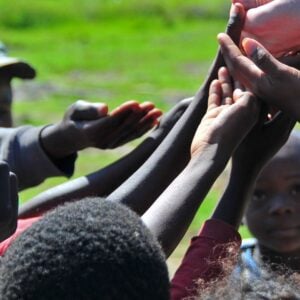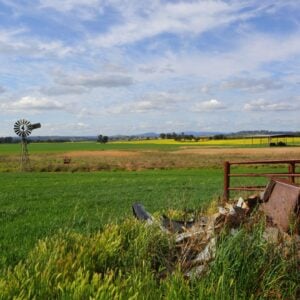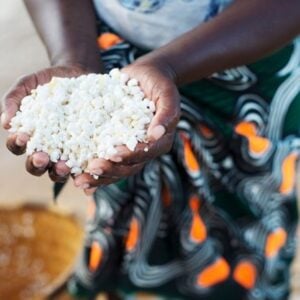Kenya continues to battle a severe hunger and malnutrition crisis, with more than 18.7 million people—over one-third of its population—undernourished. Recurrent droughts, floods, and disease outbreaks have intensified the crisis. Yet, U.S. foreign assistance has emerged as a vital lifeline, helping millions of Kenyans access food, nutrition, and long-term resilience.
U.S. Humanitarian Aid at Work
In response to the devastating 2023 Horn of Africa drought, the U.S. government—through the U.S. Agency for International Development (USAID)—provided nearly $310 million in humanitarian support to Kenya. The funding enabled emergency food aid, nutrition services, and community resilience programs.
The U.S. Department of Agriculture’s McGovern-Dole Food for Education Program has also played a critical role. In 2023 alone, it supplied U.S.-grown food to over 650,000 schoolchildren across 2,000+ schools, ensuring nutritious meals that support learning, health, and well-being.
Fighting Acute Malnutrition
Acute malnutrition remains one of Kenya’s most urgent challenges, especially among children under five. As of October 2023, an estimated 847,000 children faced acute malnutrition. U.S.-supported initiatives have provided therapeutic feeding, vitamin supplements, and community-based nutrition services to help save lives and prevent long-term developmental impacts.
Reaching Refugees and Vulnerable Groups
Kenya is home to hundreds of thousands of refugees who are at high risk of food insecurity. In 2024, the U.S. government allocated $37 million to assist these vulnerable populations, allowing the World Food Programme (WFP) to increase food rations and resume cash transfers in refugee camps such as Dadaab and Kakuma. These interventions are vital in fighting malnutrition and empowering displaced families to meet their own food needs.
Challenges on the Ground
Despite ongoing efforts, the Global Hunger Index 2024 classifies Kenya’s hunger level as “serious.” Child stunting and undernourishment rates remain high, while recent U.S. aid reductions have forced significant cuts in refugee food rations—some receiving only 28% of recommended portions.
Funding gaps threaten to reverse years of progress. Humanitarian organizations have been forced to scale back assistance, putting millions at greater risk—particularly as climate shocks intensify. Kenya’s heavy dependence on rain-fed agriculture makes it highly vulnerable to droughts and floods, which continue to destroy crops, kill livestock, and reduce access to safe water.
Building Long-Term Resilience
While U.S. aid provides essential short-term relief, sustainable solutions are needed to break the cycle of hunger. Greater investment in climate-smart agriculture, women’s empowerment, and diversified food systems can build resilience against future crises. Programs that combine food aid with long-term development—such as training farmers, improving irrigation, and supporting local food production—offer a more lasting path forward.
Looking Ahead
The partnership between Kenya and the United States stands as a testament to the power of international cooperation. U.S. programs have nourished children, supported education, sustained refugees, and strengthened community resilience.
Yet, Kenya’s persistent hunger crisis highlights that humanitarian aid alone is not enough. Tackling the root causes—poverty, inequality, and climate vulnerability—will be key to lasting change. With continued collaboration between the U.S., Kenyan institutions, and global partners, the fight against hunger in Kenya can move from relief to recovery—and eventually, resilience.
In essence, U.S. aid in Kenya is not just about feeding people today—it’s about empowering communities to thrive tomorrow.







